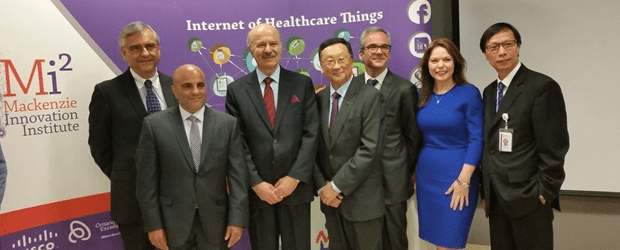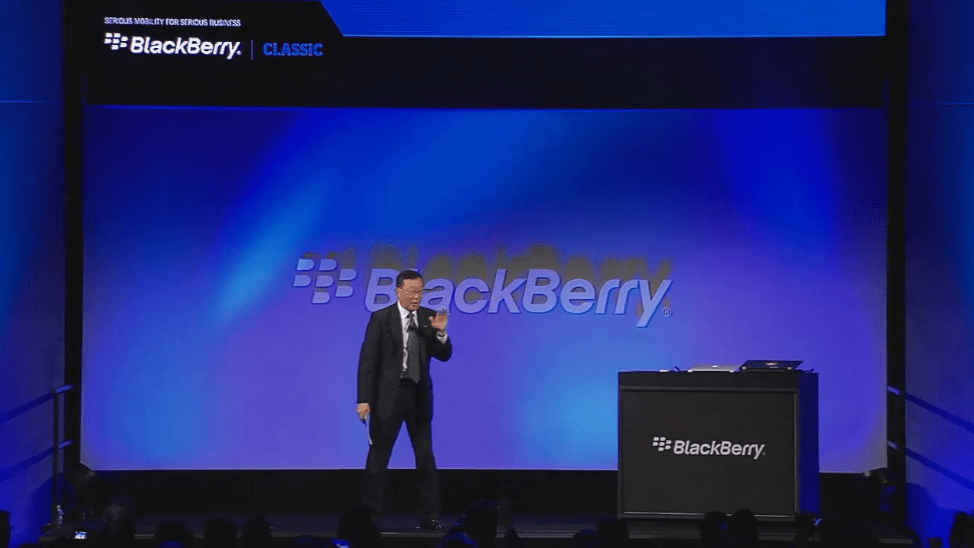Richmond Hill, Ont. – Packed hospital waiting rooms are common at Ontario healthcare facilities. People waiting in these areas are typically unaware that nurses and doctors along with other hospital staff are bogged down with paperwork which is a factor in hospital wait times.
According to the Province of Ontario, nine out of every 10 patients with minor conditions will wait more than four hours in anyone of Ontario’s 126 emergency rooms and urgent healthcare units.
Altaf Stationwala, president and CEO of Mackenzie Health, said making clinical decisions is core to what healthcare providers do on a daily basis. However, providers are delayed in advancing key steps in the process because of lack of data and workflow that leads to long hours for patients.
Mackenzie Health, a regional healthcare provider for Southwest York region operating the Mackenzie Richmond Hill Hospital, is looking to change the workflow of nurses, Doctors and staff and have entered into a partnership with technology vendors BlackBerry Ltd., and Cisco Canada.
Today, Mackenzie Health introduced the second phase of its innovation unit called MI2 (Mackenzie Innovation Institute-squared). Phase two will see Mackenzie Health deploy smart mobile clinical messaging and alerting system in an Internet of Healthcare Things approach.
Phase one saw the healthcare provider implement smart beds and badges.
Stationwala listed phase two goals such as communication that is of faster and more accurate, private and secure that can lead to better informed decisions being made right at bedside.
“The objectives here are to improve the overall patient experience as well as the care provided by the nurses and doctors. We want nurses and doctors spending more time with patients and less time on paperwork,” Stationwala said.
Mackenzie Health is working with BlackBerry, Cisco Canada and Toronto-based independent software vendor ThoughtWire that will see nurses and doctors inside the Innovation Unit sporting BlackBerry encrypted-smartphones connected to the secure clinical alerting and messaging system. BlackBerry Enterprise Server 12 (BES12) is being deployed at Mackenzie Health as the enterprise mobility management platform that will enable nurses, doctors and hospital staff to access data and applications which comply with data privacy regulations in the Province.
BlackBerry CEO John Chen, who was on hand for the launch of MI2, said it’s possible for future BlackBerry smartphones to be dirt proof and water proof. Chen did not confirm that these features will be part of BlackBerry’s product road map but added that if the surface of the smartphone is bacteria free, for example, it will be one less thing nurses need to wipe down.
“We came to this project from a product standpoint,” Chen said. “Working on this MI2 project is a learning experience for us and now we have more than 300 partners in this area. We learn more about how our technology can become end-to-end and solve problems to make life better for patients.”
Chen said that the current healthcare model is unsustainable and society needs to get involved in changing the way people view patient care.
“People are demanding a healthy life but diseases are found every day. Checking into a hospital is just not going to do it. Home care may be a better solution, while hospitals are used for more critical care. We are working with partners to make home care more of a reality,” Chen added.
Robert Fox, Cisco Canada’s director of healthcare transformation, said home connected healthcare is a complicated matter. There are so many unanswered questions such as:
- How will the doctors get paid;
- How do you get it connected to the home;
- How will it be monitored;
- What are the healthcare approvals;
- How will mobility factor in; and
- How will the data be collected and protected.
“All these questions need to be addressed but there should be shift to home-based healthcare, but we need to find a solution to the many problems, but I believe the industry can support this along with the channel partner ecosystem,” Fox said.
Bernadette Wightman, the president of Cisco Canada, told CDN that healthcare in the connected home is a priority in the company’s Internet of Everything market strategy.
One of the keys to this is working closely with vendor partners such as BlackBerry, but more needs to happen from a community standpoint.
“The community needs to be committed to a new healthcare process, which means the patients come first for nurses and doctors. Sometimes technology gets in the way,” she said.
Cisco is providing a closed-loop unified communications system that will help to automate workflows mostly for routine tasks.
Meanwhile, ThoughtWire’s Ambiant machine intelligence platform will act as an Internet of Things portal for staff, systems and devices.
The main concept for phase two is to get healthcare providers back in front of patients, said Stationwala. “Nurses spend hours documenting and looking for technology at work and that does not improve the workflow. Staff is not stationary. They are moving all the time and the aggregated data needs to move with them. There are so many devices that spit out data, but are not unified. The challenge is access verses security. It’s an argument of this verses that,” he said.





Could be just the partnership BB needs to solidify their position in that market.